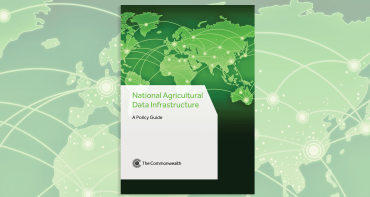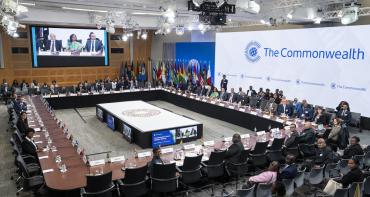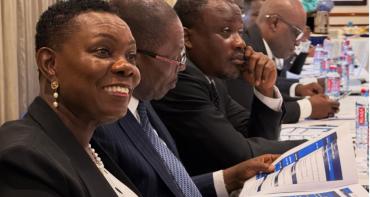John Maynard Keynes became popular after his death for his teachings now called Keynesian economics, which are applied in most economic crises.

This blog is part of the seminar series on ‘The Economics of COVID-19’.
Traditional Wisdom
John Maynard Keynes became popular after his death for his teachings now called Keynesian economics, which are applied in most economic crises.
Whilst before Keynes, the classical view was to run a balanced budget – that is, maintaining a constant balance between government’s revenues and expenditures, Keynes accepted that a country could afford to run a budget deficit as long as it was prepared to run a surplus in the future. More importantly, Keynes was an advocate for running large budget deficits during crisis, in order to revive aggregate demand, consumption and employment.
Many governments’ response to the COVID-19 pandemic is essentially Keynesian. Large governments like the UK and Canada are spending billions of dollars to maintain the cycle of economic activity and employment. For example, in April the UK introduced a furlough scheme which pays firms up to £2500 per employee to keep their workers employed. Canada, Australia and most other G20 governments have done similar.
However, in the developing world, and especially amongst small and other vulnerable countries, the fiscal response has been much smaller. The question is why? Are these countries not fans of Keynes? Or do they just not have enough income?
The large multilateral institutions responsible for maintaining global financial health seem to disagree with the latter. Their view is that grants and concessional resources should only go to countries in need, classified as those with low-income per capita.
As such, the G20’s debt relief initiative announced as part of their response to the COVID-19 pandemic will only be afforded to 77 of the world’s poorest countries. The assumption is that middle and high income countries earn enough income to fend for themselves.
The International Monetary Fund advises that in good times they should save for the bad, so that they can respond counter-cyclically in times of crisis. So again, if income is sufficient, why haven’t they followed Keynes?
The Reality for Small States and Other Vulnerable Countries
The reality is that per capita income is far from a perfect barometer of countries’ crisis response. The policy tools available to more advanced countries are just not present for the smaller and more vulnerable ones. Countries in the Caribbean, Africa and Pacific region, for example, who are mostly middle income, can hardly keep their governments in operation, far less implement an accommodating shift in their fiscal policies.
It is not for a lack of want or trying, or undue care for their citizens. With limited domestic financial markets from which to borrow, highly leveraged balance sheets that impair their ability to borrow further, high costs of government operations, constant exposure to multiple threats including category 5 storms, and limited internal resources, for example, to grow food and to manufacture local products, it is just not possible to offer large stimulus packages.
Furthermore, the final consequences of such packages for balance of payments can be quite different for small countries. The pandemic clearly shows that.
In advanced countries, consumption is largely domestic. These countries can grow their own food and produce daily requirements. Indeed, there has been a shift to global value-chains where countries act like factory lines to produce a single product, but the point is that advanced countries can manufacture or produce what they want should they choose to. They don’t have to depend on earning foreign exchange in order to purchase food and other necessities.
Small states cannot say the same. In a majority of these countries most of what is consumed is imported. As tourism and thus foreign exchange earnings have halted, if governments were to print money to maintain consumption, you would have excess domestic currency chasing a reducing store of foreign exchange, resulting in balance of payments problems and devaluation.
In essence, small states would struggle to pay creditors and buy food, and the value of local currency would fall dramatically, meaning that citizens would have to pay much more to acquire one dollar of foreign exchange. One crisis would beget another.
Weighing the Options
So how then do small and vulnerable developing countries respond? How does this policy divide affect their recovery? One not so recommended option is to point out the flaws of Keynes. Another of course is to hope and pray for a quick end to the pandemic.
Without access to concessional resources, and having limited policy manoeuvrability, there is nothing more that these countries can do to respond to this crisis. Printing money is not a feasible option and opportunities for borrowing are limited. And even if it were not, the scale of funds to be leveraged is dwarfed by the scale of the pandemic.
An option which the Commonwealth can assist with, is to advocate for improved access to concessional finance. While we accept that there is a need to focus on poverty, vulnerable countries suffer when crisis hits. No one should be left behind. With some effort and thought, enough resources can be generated to aid all in need.
Were Keynes still alive he may have pointed to the World Bank’s International Development Assistance capital market intervention which raised US$65 billion in concessional resources in 2018, as a possible means to ensure counter-cyclicality. Surely, such innovation can be applied to tackle this crisis?
Join the Conversation
Commonwealth governments will be discussing the response to the current crises along with issues of global coordination at its next Economics of COVID-19 Seminar taking place on 3 June 2020.
Share your views with our distinguished panellists by registering for the seminar.
For more information or questions about registration please contact: [email protected]



